
Bye Bye Birdie is a stage musical with music by Charles Strouse and lyrics by Lee Adams, based upon a book by Michael Stewart.

Hue and Cry is a 1947 British film directed by Charles Crichton and starring Alastair Sim, Harry Fowler and Joan Dowling.

Imogen Hassall was an English actress who appeared in 33 films during the 1960s and 1970s.

Nearing Grace is a 2005 film directed by Rick Rosenthal, based on the novel by Scott Sommer.

Carry On Up the Jungle is a 1970 British adventure comedy film, the 19th release in the series of 31 Carry On films (1958–1992). The film marked Frankie Howerd's second and final appearance in the series. He stars alongside regular players Sid James, Charles Hawtrey, Joan Sims, Terry Scott and Bernard Bresslaw. Kenneth Connor returns to the series for the first time since Carry On Cleo six years earlier and would now feature in almost every entry up to Carry On Emmannuelle in 1978. Jacki Piper makes the first of her four appearances in the series. This movie is a send-up of the classic Tarzan films. It features an unusually dark tone for the series, as the protagonists are faced with certain death after they are apprehended by a cannibalistic tribe in the jungle. The film was followed by Carry On Loving 1970.

Ian Hunter was a Cape Colony-born British actor of stage, film and television.

John Hassall was an English illustrator, known for his advertisements and poster designs.
David McGillivray is an actor, producer, playwright, screenwriter and film critic.
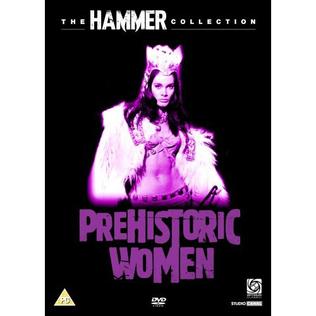
Prehistoric Women is a British fantasy adventure film directed by Michael Carreras, starring Martine Beswick and Michael Latimer. It was first released in the US in 1967, and released in the UK 18 months later under the title Slave Girls, where it was trimmed by 17 minutes and played as the supporting feature to The Devil Rides Out (1968).
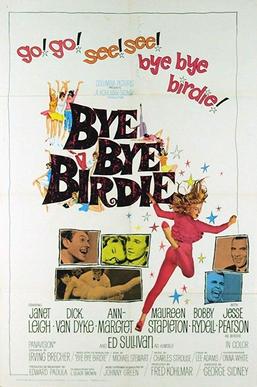
Bye Bye Birdie is a 1963 American musical romantic comedy film directed by George Sidney from a screenplay by Irving Brecher, based on Michael Stewart's book of the 1960 musical of the same name. It also features songs by composer Charles Strouse and lyricist Lee Adams, and a score by Johnny Green. Produced by Fred Kohlmar, the film stars Janet Leigh, Dick Van Dyke, Ann-Margret, Maureen Stapleton, Bobby Rydell, Jesse Pearson, and Ed Sullivan. Van Dyke and featured player Paul Lynde reprised their roles from the original Broadway production.

Hector William "Harry" Cording was an English-American actor. He is perhaps best remembered for his roles in the films The Black Cat (1934) and The Adventures of Robin Hood (1938).

The Karate Killers is a 1967 American spy film and feature-length film version of The Man from U.N.C.L.E.'s third season two-part episode "The Five Daughters Affair". The episodes were originally broadcast in the United States on March 31, 1967, and April 7, 1967, on NBC. It, as does the television series, stars Robert Vaughn and David McCallum. It is the sixth such feature film that used as its basis a reedited version of one or more episodes from the series. Joan Crawford, Telly Savalas, Herbert Lom, Diane McBain, Jill Ireland, and Kim Darby are among those in the cast. The film was directed by Barry Shear and written by Norman Hudis with the story by Boris Ingster.

Don't Bother to Knock is a 1961 British comedy film directed by Cyril Frankel starring Richard Todd, Nicole Maurey, Elke Sommer, June Thorburn, Rik Battaglia and Judith Anderson. The screenplay is by Denis Cannan and Frederic Gotfurt, based on the 1959 novel of the same name by Clifford Hanley.

La vampire nue is a 1970 film directed by Jean Rollin. It concerns a suicide cult led by a mysterious man known as "The Master".
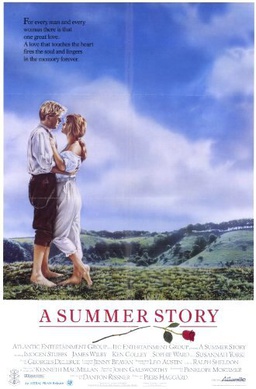
A Summer Story is a British drama film released in 1988, directed by Piers Haggard, based on John Galsworthy’s 1916 short story "The Apple Tree", with a script by Penelope Mortimer. It stars James Wilby, Imogen Stubbs, and Susannah York.
Sam B. Jacobson was the editor of Frank Buck’s second film, Wild Cargo.
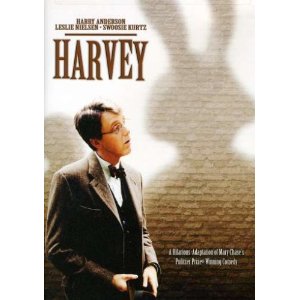
Harvey is a 1999 American made-for-television fantasy-comedy film and a remake of the blockbuster American comedy drama film 1950 classic film based on Mary Chase's 1944 play of the same name. The television adaptation was directed by George Schaefer and starred Harry Anderson, Leslie Nielsen, and Swoosie Kurtz. Though it was filmed in 1996, the film sat on the shelf until July 18, 1999, when it was broadcast by CBS, two years after Schaefer's and Stewart's deaths.
Red: Werewolf Hunter is a 2010 Canadian television horror film directed by Sheldon Wilson, loosely based on the story of Little Red Riding Hood. It is a Syfy television film, produced by Toronto-based Chesler/Perlmutter Productions. It premiered on Syfy on October 30, 2010, and released on DVD on January 3, 2012.
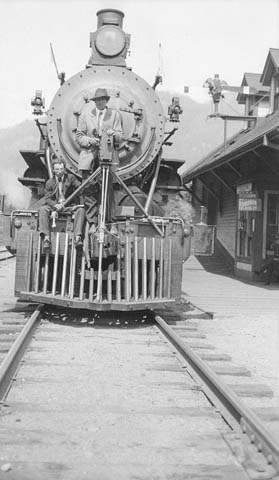
Henry Cronjager was a cinematographer during the early days of silent film, and was active during the beginning of the sound film era.
Ray Selfe was an English film director, producer, screenwriter, editor, actor and movie theatre owner.
















